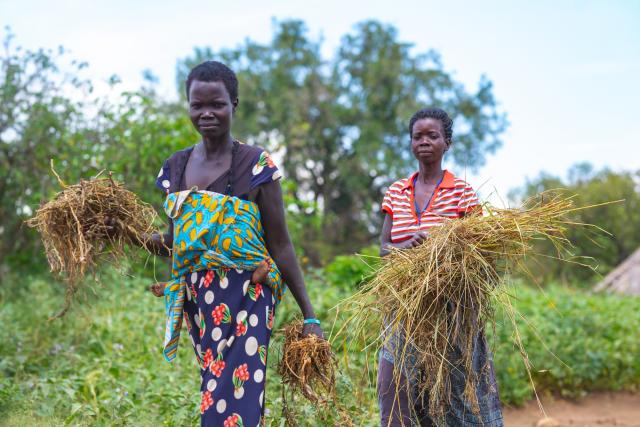The Sponge Village of Atego: Resilience Design for Water and Landscapes

View Presentation Watch Recording
Join SCALE for a webinar on agroecosystem restoration for climate action told through the story of the sponge village in Atego
A sponge village soaks up the energy and resources flowing through it and stores them for the long-term productivity and resilience of both the land and people.
Organized by SCALE, this webinar will recount the journey of how Atego became a sponge village and how others can follow in its footsteps through Resilience Design. Detailed in the recently published primer is the story of how community agroecosystems can be restored to provide local, organic food abundance while buffering communities and households from extreme climate and weather events as well as economic shocks and stresses.
Natalie Topa (Global Advisor for Regenerative Resilience and Circular Bioeconomy, Danish Refugee Council) and Warren Brush (global resilience design consultant, educator, lecturer, and implementer) will guide a discussion about resilience design techniques such as borehole recharges, road water harvesting, and food forests documented in this new publication. They will discuss moving machines over a period of nine days to transform the village of Atego in Uganda and will share resources and tools for partners interested in creating their own sponge villages.
This Primer brings together the experiences of multiple partners and donors, including the Danish Refugee Council, Mercy Corps, Danida, and the USAID Bureau for Humanitarian Assistance (BHA). The Sponge Village Training, conducted by the Danish Refugee Council and funded by the Danish Embassy and DANIDA in Uganda, is part of the Northern Uganda Resilience Initiative. DANIDA and DRC Uganda have been working together closely to bring innovation and regenerative thinking to the resilience of infrastructure projects. This work also builds on guidance from the TOPS Resilience Design in Smallholder Farming Systems Approach and Permagarden Approach, as well as permaculture design principles, passive water harvesting, agroforestry, agroecology, and civil and water engineering at the community and watershed levels.
This webinar will be offered in English and French.
Speakers
Natalie Topa has recently joined DRC’s global team as Global Advisor for Regenerative Resilience and Circular Bioeconomy. Natalie has spent the last four years building DRC East Africa's regional portfolio in nature-positive approaches to resilience in displacement contexts. Natalie has spent years studying, practicing and teaching permaculture, agroecology, agroforestry, water harvesting earthworks and dam building and believes that working in partnership with natural systems is the only option for climate action and social justice.
Warren Brush is a global resilience design consultant, educator, lecturer, and implementer. He has worked for over 30 years in agroecological education and regenerative system design for communities, private and public organizations, households, farms, and conservation properties worldwide. He is co-founder of Quail Springs Permaculture and True Nature Design, his private consulting firm. He was also a member of the USAID’s TOPS team where he helped to develop the Resilience Design Framework and Permagarden Approach. He is currently working as a consultant on a variety of food security projects around the globe including the SCALE award for USAID’s Bureau of Humanitarian Assistance and is a lead Resilience Design consultant for the Danish Refugee Council.